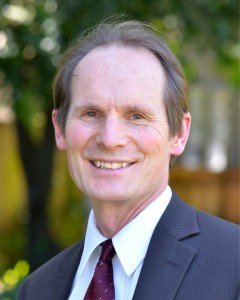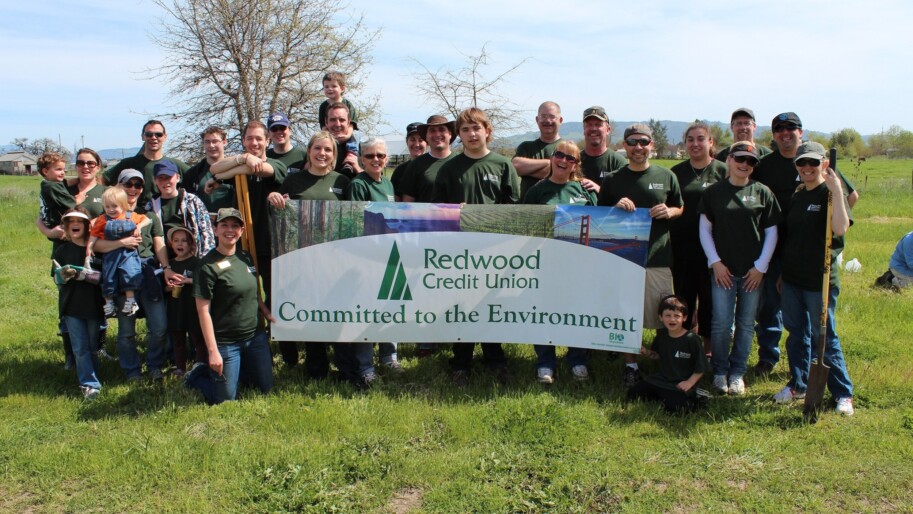(Published July 11, 2016 in the North Bay Business Journal)
Any financial institution that claims to protect its clients’ or members’ hard-earned investments needs to emulate the innovative sustainability programs of Redwood Credit Union and Beneficial State Bank.The connection may not seem obvious but the reason is as simple as cause and effect. Climate change impacts create financial chaos, (Think Katrina, Sandy and the recent Lake County fire.) and if not curbed in the next few years, will dramatically destabilize the global economy.
Unfortunately many companies are still looking only at the short-term bottom line, either pleading job losses or even rejecting climate change out of hand.
Redwood Credit Union
RCU has proven that a financial institution can be both sustainable and successful. Founded in 1950, it has grown to $2.8 billion in assets and ranks as the 63rd largest credit union of approximately 6,300 in the U.S. Clearly sustainability doesn’t hurt business. And, although RCU is a not-for-profit institution with no shareholders to answer to, the company does answers to its members and employees. And these members and employees are obviously satisfied.
Their Cleveland Avenue headquarters was the first commercial building in the county to be LEED certified. Their facilities are a showcase of sustainable practices, including their recently-installed solar panels which produce 662 kilowatts of power, reducing RCU’s carbon footprint by 300 tons of greenhouse gases annually.
But their commitment goes much further than technology. According to Steve Howard, AVP Corporate Real Estate, sustainability is part of their values. They work to promote it both within the company and in the community at large.
For example they offer below-market-rate solar loans to their members which enables them to finance their installations without touching their home equity. To date, the program has lent approximately $4 million to help others achieve important energy savings.
In the same vein, they offer a reduced rate to members who are purchasing either a hybrid or electric vehicle.
“Our mission is to serve the best issues of our members,”said Ron Felder, Executive Vice President. “In fact, the genesis of our solar program was members asking for it.”
Beneficial State Bank
Another innovative financial institution, Beneficial State Bank, which has been in Santa Rosa for a little ove a year and is headquartered in Oakland, has an unconventional corporate structure and is doing some impressive investing in renewable energy.
Founded in 2007 the bank takes a triple bottom line (profits, people, planet) approach to their operations and investments. They are a B Corp, which is a relatively new kind of corporation that is for-profit but independently certified to meet rigorous standards of social and environmental performance, accountability, and transparency.
When Kat Taylor and Tom Steyer founded the bank, they said they wanted “to be a catalytic bank. We need to change the banking system for good. The bank model has to work, but it has to be free of the constraints that would otherwise co-opt it into the practices that we don’t want.”
“As a result, 100% of the economic rights of our bank belong to our foundation, Beneficial State Foundation, which is a public charity governed in the public interest, permanently. Its bylaws mandate that any profits, when distributed, must go back into the low income communities and/or the environment upon which we depend. It’s a virtuous cycle of reinvestment of profits to the community of depositors that provided capital in the first place.”
Is it working? Beneficial has invested a total of $25.8 million in renewable energy projects, producing 132 million kWh in clean power, the equivalent of taking 19,410 cars off the road for one year. $10.9 million of this has been invested in solar projects the majority of which are located in Northern California, but are also in Southern California and Oregon.
The bank also focuses on community and supporting economic and social justice. They do this first through their lending dollars. They have loaned $56.9 million to low and moderate income communities and another $19.1 million in affordable housing. They also donate 10% of their profits to nonprofit organizations, this is over ten times the national average for corporate donations to nonprofits.
“We are looking at expanding our services to local non profits, women and minority owned business, multi-family properties, and solid commercial lending opportunities,” said Brian Rose, Vice President and local bank representative
Kudos to two financial institutions taking different paths,to the same goal of making significant investments in the environment and the community.
That’s sound business!
Jane Bender is the President of The Climate Center.


